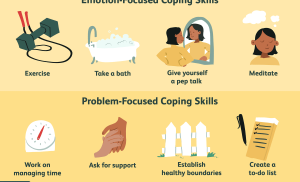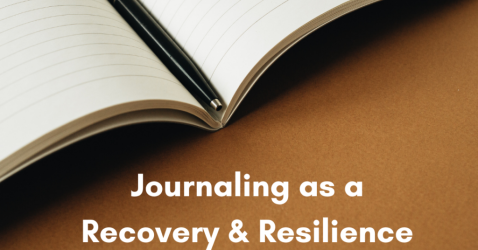Top 5 Benefits of Journaling for Mental Health: Unique Writing Prompts For Mental Health
Are you looking for a simple and effective way to improve your mental well-being? Look no further than “Journaling for Joy: Unique Writing Prompts for Mental Health.” This article introduces a diverse range of writing prompts that are designed to spark joy and promote self-reflection. Whether you’re seeking clarity, stress relief, or personal growth, these prompts offer a creative outlet to express yourself and cultivate a positive mindset. Say goodbye to mundane journal entries and embrace the joyful journey of journaling for mental health.
The Benefits of Journaling for Mental Health
Journaling is a powerful tool that can help improve your mental health and overall well-being. By putting your thoughts and feelings down on paper, you have the opportunity to gain clarity, process emotions, and promote self-awareness. Here are some of the key benefits of journaling:
Reducing Stress and Anxiety
Writing in a journal can be incredibly therapeutic, especially when it comes to managing stress and anxiety. When you express your worries and concerns on paper, it can help release the tension that may be weighing you down. Additionally, journaling provides a safe space to explore your emotions and identify the underlying causes of your stress, allowing you to develop effective coping strategies.
Improving Mood and Well-being
By regularly journaling, you can enhance your overall mood and well-being. When you write about positive experiences, accomplishments, and things you’re grateful for, it helps shift your focus to the positive aspects of life. This can lead to increased optimism, happiness, and a greater sense of overall satisfaction.
Enhancing Self-awareness
Journaling allows you to delve deep within yourself and gain a better understanding of your thoughts, feelings, and behaviors. By reflecting on your experiences and exploring your inner world, you can uncover patterns, triggers, and areas for personal growth. This enhanced self-awareness can help you make more conscious choices, improve relationships, and develop a stronger sense of self.
Promoting Emotional Healing
Writing in a journal can be a healing practice, particularly when it comes to processing and working through emotional pain. By expressing your emotions through writing, you create an outlet for release and exploration. Journaling can help you navigate through grief, trauma, or difficult experiences by allowing you to express yourself honestly, validate your emotions, and find meaning in your journey.
Choosing the Right Journal
When it comes to journaling, choosing the right journal is an important step. Here are some factors to consider when selecting a journal:
Consider the Format
Journals come in various formats, including traditional paper journals, digital journals, and even audio or video journals. Consider which format aligns best with your personal preferences and needs. Some people enjoy the tactile experience of writing on paper, while others may find it more convenient to type on a digital platform.
Select a Journal that Fits Your Personality
Journals can be reflective of your personality and style. Find a journal that resonates with you, whether it’s an elegant leather-bound book, a colorful and inspirational journal, or a minimalist and functional notebook. When you feel connected to your journal, it can enhance your journaling experience and motivate you to continue writing.
Try Different Sizes or Styles
Explore different sizes or styles of journals to find what suits you best. Some people prefer small pocket-sized journals for portability, while others enjoy larger journals that provide ample space for creativity and self-expression. Additionally, consider whether you prefer lined pages for structured writing or blank pages for more freedom and creativity.
Choose a Journal with Prompts or Blank Pages
Decide if you prefer a journal with prompts or one with blank pages. Prompts can help guide your writing and provide a starting point when you’re unsure of what to write about. On the other hand, blank pages offer unlimited possibilities and allow you to freely express yourself without any limitations.
Getting Started with Journaling
Now that you have chosen the perfect journal, it’s time to get started with your journaling practice. Here are some tips to help you begin:
Creating a Relaxing Environment
Find a quiet and comfortable space where you can journal without distractions. Create a cozy atmosphere by lighting a candle, playing calming music, or surrounding yourself with items that bring you a sense of peace. Making your journaling environment inviting can help you relax and fully immerse yourself in the process.
Setting Aside Regular Time
Establishing a consistent journaling routine is key to reaping the benefits of this practice. Set aside dedicated time each day or week to journal. Whether it’s in the morning to start your day with intention or in the evening to reflect on your experiences, find a time that works best for you and commit to it.
Choosing a Writing Tool
Select a writing tool that feels comfortable and enjoyable to use. Some people prefer the smooth flow of a pen on paper, while others may prefer a digital stylus or keyboard. Experiment with different writing tools to find what feels most natural to you and allows your thoughts to flow freely.
Deciding on a Writing Style
There is no right or wrong way to journal, so feel free to explore different styles and techniques. You can opt for stream-of-consciousness writing, where you let your thoughts flow uninterrupted onto the pages. Or you can choose to follow structured prompts or create themes for each entry. Find a writing style that resonates with you and keeps you engaged in the process.
Journaling Prompts for Self-reflection
Self-reflection is a powerful practice that can deepen your understanding of yourself and promote personal growth. Here are some journaling prompts to kick-start your journey of self-reflection:
Reflect on Your Emotional State
Take a moment to check in with yourself and describe your current emotional state. What are you feeling right now? What might be contributing to these emotions? Explore the nuances of your emotions and allow yourself to fully express and process them.
Explore Your Personal Values and Beliefs
Write about your core values and beliefs. Reflect on what is truly important to you and how those values guide your decisions and actions. Consider if there are any values or beliefs that you would like to cultivate or let go of in order to align more authentically with who you are.
Write About Your Dreams and Aspirations
What are your dreams and aspirations for the future? Allow yourself to dream big and write about the things you’d like to achieve or experience. Visualize your ideal life and describe how it would feel to live those dreams. This exercise can help clarify your goals and serve as a source of motivation and inspiration.
Describe Your Ideal Self
Imagine your best self – the person you aspire to be. Write a detailed description of this ideal version of yourself, including your values, attributes, habits, and achievements. Reflect on how you can embody these qualities more fully in your day-to-day life and what steps you can take to align with your ideal self.
Prompts for Gratitude and Positivity
Practicing gratitude and focusing on positivity can shift your perspective and cultivate a more joyful mindset. Here are some journaling prompts to help you cultivate gratitude and positivity in your life:
List Three Things You’re Grateful for Today
Take a moment to reflect on your day and write down three things that you’re grateful for. They can be big or small – the key is to recognize the positive aspects of your life and appreciate them. Cultivating a regular gratitude practice can help foster a sense of contentment and happiness.
Write a Thank-You Letter to Someone Who Has Positively Impacted Your Life
Express your gratitude to someone who has made a positive impact on your life. Write a heartfelt letter thanking them for their presence, support, or guidance. This exercise not only allows you to show appreciation but also deepens your connection and fosters feelings of love and gratitude.
Describe a Beautiful Moment You Recently Experienced
Recall a moment of beauty that touched your heart and describe it in detail. It could be a breathtaking sunset, a kind gesture from a stranger, or a warm and loving embrace. By reliving these beautiful moments through writing, you invite more beauty and positivity into your life.
Write a Letter to Your Future Self
Imagine yourself in the future, whether it’s a year from now or a decade. Write a letter to your future self, expressing your hopes, dreams, and words of encouragement. This exercise can serve as a reminder of your aspirations and provide motivation to continue growing and evolving.
Prompts for Stress Relief
Journaling can be an effective tool for managing and relieving stress. By acknowledging and expressing your worries and concerns, you can gain a sense of control and reduce anxiety. Here are some prompts to help you find relief from stress:
Describe a Place or Activity that Makes You Feel Calm
Visualize a place or engage in an activity that brings you a sense of calm and tranquility. Describe it in detail – the sights, sounds, and even smells. By immersing yourself in this calming experience through writing, you can evoke those feelings within yourself and find a moment of peace.
Write Down Your Worries and Then Let Them Go
Create a safe space to acknowledge and release your worries. Write them down without judgment or the need to find solutions. Allow yourself to fully express your concerns, and then, symbolically let them go by tearing up or burning the paper. This act can provide a sense of release and free you from the grip of anxiety.
Create a List of Stress-management Techniques
Reflect on the various techniques you use to manage stress. Write a comprehensive list of strategies that have been effective for you in the past or those you would like to try. This exercise can help you build a toolkit of stress-management techniques that you can turn to in times of need.
Write a Letter to Your Stress
Personify your stress and write a letter to it. Express how it makes you feel and why it is no longer welcome in your life. By externalizing your stress and addressing it directly, you take a proactive stance and reclaim your power over it.
Prompts for Self-Compassion
Practicing self-compassion is essential for your overall well-being and mental health. By being gentle and kind to yourself through journaling, you can cultivate self-love and acceptance. Here are some prompts to promote self-compassion:
Write Yourself a Love Letter
Imagine that you are writing a love letter to yourself. Express your deepest affection, appreciation, and admiration for who you are as a person. Celebrate your strengths, recognize your resilience, and remind yourself that you are worthy of love and compassion.
Describe a Time when You Overcame a Challenge
Reflect on a time when you faced a challenge and overcame it. Describe the situation, the emotions you experienced, and the actions you took to overcome the obstacle. Celebrate your strength, resilience, and personal growth as a result of navigating that challenge.
Write Down and Challenge your Inner Critic’s Negative Thoughts
Identify the negative thoughts and self-criticisms that often plague your mind. Write them down and then challenge their validity. Reframe those negative thoughts into more compassionate and empowering statements. This exercise can help you develop a healthier inner dialogue and strengthen self-compassion.
Celebrate Your Small Achievements
Acknowledge and celebrate even the smallest achievements in your life. Write about the progress you’ve made, the milestones you’ve reached, or the steps you’ve taken towards your goals. By recognizing and celebrating your accomplishments, you reinforce positive self-esteem and motivation.
Prompts for Emotional Healing
Writing can be a therapeutic tool for emotional healing. Here are some prompts to help you navigate through difficult emotions and experiences:
Write a Letter to Someone You’ve Lost
If you’ve experienced the loss of a loved one, writing a letter to them can be a healing exercise. Share your thoughts, feelings, and memories with them. This letter can provide closure, allow you to express your love, and help you process your grief.
Describe a Moment of Forgiveness
Reflect on a moment when you forgave someone who has hurt you. Describe the emotions, thoughts, and realizations that led to that moment of forgiveness. Writing about forgiveness can help you let go of resentment and find peace within yourself.
Reflect on a Difficult Experience and Identify Lessons Learned
Think back to a challenging experience you’ve encountered. Reflect on the lessons you learned from that experience and how it has shaped you into the person you are today. By finding meaning in difficult experiences, you can promote growth and find empowerment.
Write a Poem or Song about Your Feelings
If you have a creative side, consider expressing your feelings through poetry or song. Allow your emotions to flow onto the pages as lyrics or verses. This creative outlet can offer catharsis and allow for a deeper exploration of your emotions.
Prompts for Personal Growth and Exploration
Journaling can be a tool for personal growth and self-discovery. Here are some prompts to facilitate personal growth and exploration:
Write a Letter to Your Younger Self
Imagine you could go back in time and give advice to your younger self. Write a letter to that version of yourself, offering guidance, support, and encouragement. This exercise can provide a sense of compassion for your past self and foster gratitude for the lessons learned along the way.
Describe a Skill or Hobby You Would Like to Develop
Explore your passions and interests by writing about a skill or hobby you would like to develop. Describe why it appeals to you and the steps you can take to start learning or practicing. By visualizing your growth and taking action, you can incorporate more joy and fulfillment into your life.
Create a Vision Board of Your Goals and Dreams
Use your journal as a canvas to create a vision board of your goals and dreams. Cut out images or draw symbols that represent your aspirations and arrange them on a page. This visual representation can serve as a source of inspiration and motivation as you work towards your goals.
Write About a Book or Movie that Inspired You
Reflect on a book or movie that had a profound impact on your life. Write about why it inspired you, the lessons you took away from it, and how it influenced your perspective. Sharing your experience with literature or art can deepen your connection to the material and allow for personal growth.
Prompts for Gaining Clarity and Making Decisions
Journaling can help you gain clarity when faced with difficult decisions or a lack of direction. Here are some prompts to guide you towards making decisions and finding clarity:
Make a Pros and Cons List for a Difficult Choice
When faced with a difficult decision, create a pros and cons list. Write down all the positive and negative aspects related to the decision at hand. This exercise can help you evaluate your options objectively and gain clarity on which path may be best for you.
Describe Your Ideal Life and Identify Steps to Achieve It
Imagine your ideal life – the one you daydream about. Describe it in detail, from your career to your relationships and everything in between. Then, identify the steps you can take to start moving towards that ideal life. Breaking it down into smaller actionable steps can help you visualize and work towards your dreams.
Reflect on a Recent Challenge and Explore Possible Solutions
Think about a recent challenge or obstacle you encountered. Reflect on how you responded and the lessons you learned. Explore different solutions or strategies that could have helped you overcome that challenge more effectively. This reflection can provide insights and empower you to navigate future obstacles.
Write a Letter to Your Future Self Reflecting on Your Decision
Imagine that you have made a difficult decision. Write a letter to your future self reflecting on that decision and its impact on your life. Explore the emotions, insights, and lessons learned along the way. This exercise can provide perspective and remind you of the growth and resilience that comes from making decisions.
Incorporating journaling into your daily life can be an invaluable tool for promoting mental health and well-being. Whether you choose to reflect on your emotions, express gratitude, explore personal growth, or seek clarity, journaling provides a safe and supportive outlet for self-reflection. With the wide array of prompts available, there’s no shortage of inspiration to guide your journaling journey. So grab your journal, find a quiet space, and embark on a path of self-discovery and healing through the transformative power of journaling.

















